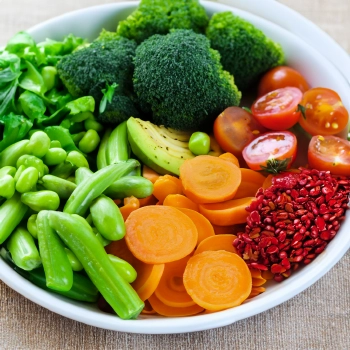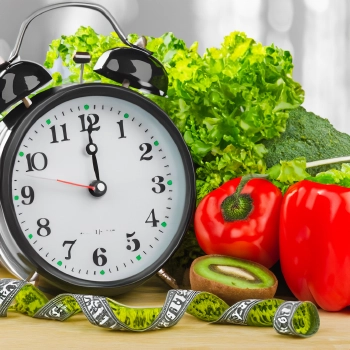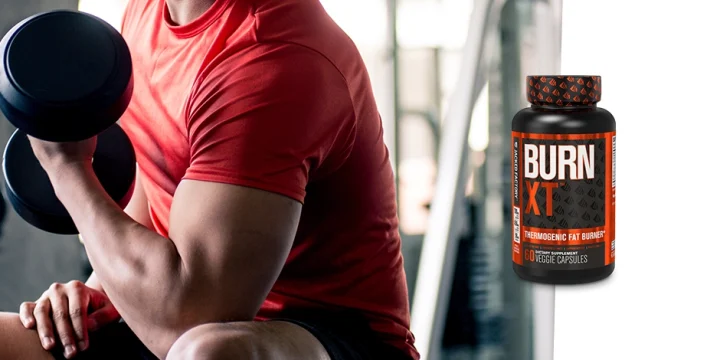I advise many of my clients to keep a careful food journal along with the exact times that they are eating. As a personal trainer, that’s a key piece of information that I need to understand how quickly people can lose weight.
Since the matter is not exactly universal, I decided to dive into research a bit deeper.
So, to better understand how the body reacts to food and exercise and when it actually starts burning fat, I got together with my dietitian and nutrition specialist, and we discussed some relevant literature together.
Here’s what I learned.
Quick Summary
- The body begins burning body fat when it has exhausted glycogen stores and blood glucose.
- To lose weight, you need to make sure that your last meal is not too close to your workout, as that’s when your blood glucose peaks.
- According to the American Council on Exercise, an adult's resting metabolic rate accounts for about 60-75% of total energy expenditure. This rate varies depending on muscle mass, age, sex, and other factors.
- In my experience, combining physical exercise and intermittent fasting with a balanced diet can accelerate fat loss and enhance your overall well-being.
How Long After Your Last Meal Does Your Body Start Burning Fat?

Your body will start burning fat about 12 hours after your last meal [1]. That’s typically how long your glycogen and blood sugar levels will last before your metabolism is forced to look for energy from other places.
According to the NIH study, when your stomach is full, the body will send signals so that the pancreas releases insulin. Insulin then escorts the glucose into cells and eventually causes your body to store excess energy as fat [2].
Note that there are different types of adipose tissue in our bodies including white fat, brown fat, and beige fat. Brown fat is responsible for regulating body temperature while white fat is for energy storage.
You can significantly reduce your blood glucose levels by being physically active after eating. And if you then add a workout routine several hours after a meal, you can boost fat loss significantly.
Incorporating High-Intensity Interval Training (HIIT) can be particularly effective. HIIT exercises specifically target visceral fat, which is typically white adipose tissue, and also help in increasing muscle mass, further boosting resting metabolism.
Does It Matter What You Eat?
Yes, it matters what you eat when it comes to triggering weight loss through fat metabolism.
I learned this the hard way after incorporating a few cheat days in my early days of weight loss. Those calorie-dense foods made me feel sluggish and impacted my weight loss journey negatively.
If you eat a lot of calorie-dense food, like saturated fat, and particularly processed carbs, then your blood glucose will spike, and you’ll gain more weight [3].
Not only that, but it will increase your blood pressure and significantly increase your risk of heart disease.
To help with weight loss efforts, aim for a low-carb diet with more healthy fats and lean proteins. These take longer to digest, break down, and transform into glucose and ketone bodies.
And don’t forget to count calories in a food journaling app like Noom. You’ll be surprised how much all those small snacks add up to over 24 hours.
The Impact of Food on Our Weight
Nutritionist Amy Beney of My Nutrition Insights shares that when we eat also has an impact on weight.
If a person does not eat on a regular basis (e.g. 3 meals a day with or without snacks) or ignores hunger cues, he may overcompensate by overeating when there is food available. This can lead to unintended weight gain.
Will Intermittent Fasting Hasten Fat Burning?

Yes, intermittent fasting will hasten fat burning, especially if you extend the time and introduce fasted-training.
I've tried intermittent fasting myself and I can vouch for its effectiveness. The results were noticeable within days. I always encourage my clients to try it.
Terrence Sanvictores, Jarett Casale, and Martin R. Huecker explained what happens: once the system has used up all the easily accessible glucose and glycogen stores, it has to get energy from the body fat [4].
Ultimately, when you can keep up that process on a regular basis, you’ll speed up your weight loss. And the more stable you can keep your glucose levels through a low-carb diet, the more effective your diet will become.
During the fasting window, your body taps into its fatty stores for energy, promoting fat burning and weight loss. Combined with a balanced diet and regular exercise, intermittent fasting can be an effective strategy for weight loss goals.
“Insulin levels drop when a person is not consuming food. During a period of fasting, decreasing insulin levels cause cells to release stored glucose as energy. Repeating this process regularly, as with intermittent fasting, leads to weight loss.”
- Jane Racey Gleeson, Member of University of Michigan Frankel Cardiovascular Center
Tips For More Effective Fat Burning
Beyond reducing calories to tackle fat stores for weight loss, there’s also the option of spending several weeks on a low-carb and high-protein diet.
I usually don't advise my clients to go on extreme keto diets. By limiting carbs intake and focusing on complex ones like whole grains and raw vegetables, you can have a big impact on insulin production. I've seen it work firsthand with my clients.
The higher protein intake will also have an impact on your metabolism and can help to build up more muscle tissue. And the more muscle you have, the higher your basal metabolic rate will be.
Being in a metabolic efficiency (ME) state can also help your body burn more fat at higher intensities. ME refers to the body's ability to perform at the highest level with the least amount of work needed.
FAQs
Do You Have To Fast To Burn More Fat?
No, you don’t have to fast to burn more fat. But you do have to eat less and consume fewer calories than you need in a day. When you have excess energy, that excess is stored, and that will be reflected in your BMI.
Does Eating Late In The Evening Limit Fat Burning?
Yes, eating late in the evening can limit fat burning. Your metabolic rate slows down while you sleep, and the excess energy will add to your body mass.
Are Insulin and Fat Loss Linked?
Yes, insulin and fat loss are linked. Insulin plays a key role in regulating blood sugar levels and fat storage. When insulin levels are high, it signals the body to store fat rather than burn it. Conversely, lower insulin levels can facilitate fat burning. This is why diets that lower insulin levels, such as low-carb diets, can be effective for fat loss.
References:
- https://www.michiganmedicine.org/health-lab/intermittent-fasting-it-right-you
- https://www.nih.gov/news-events/news-releases/nih-study-shows-how-insulin-stimulates-fat-cells-take-glucose
- https://www.ncbi.nlm.nih.gov/pmc/articles/PMC5786199/
- https://www.ncbi.nlm.nih.gov/books/NBK534877/
About The Author
You May Also Like






